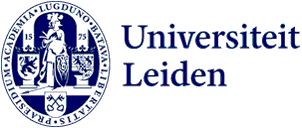23 search results for “becoming” in the Organisational structure
-
 Peter Kop
Peter KopICLON
-
 Kristell Penfornis
Kristell PenfornisSocial & Behavioural Sciences
-
Marianne van Dijken
Social & Behavioural Sciences
-
Mission Statement
Leiden University College (LUC) The Hague is an honor’s liberal arts and sciences college that builds knowledge for a better world through excellent research-led interdisciplinary teaching on global challenges. LUC, fosters critical, independent, and creative thinking in students, and providing them…
-
Support
The Department of Research provides support for research in various ways.
-
Overlap Committee Agreements
Each year different types of activities and events are organised for first year students to give them the opportunity to become well acquinted with Leiden University, Leiden itself and student life. To ensure that the introduction period for first-year students remains clearly structured and well-organised…
-
Research fellows
Research at Leiden Law School is organised in research programmes. All researchers at Leiden Law School take part in one of its research programmes and become research fellow.
-
Unions in the Local Consultative Body
Three unions represent Leiden University employees in the Local Consultative Body. The union delegation has at least six and no more than eight members who are appointed by their own unions: Unions Internal members External members AOb Nicole van Os (chair) Prof. dr. R.E. Breuker Mr. A. Charifi…
-
Internationalisation and Community
There are many Liberal Arts & Sciences colleges in the world, but we posit that LUC is unique, both in terms of our globally conscious focus and also due to our increasingly diverse community. We contend that part of what makes LUC exceptional and distinctive is its global profile and we take pride…
-
SEA Sustainability
In 2018, the SEA Employee Council is placing an emphasis on sustainability. With this in mind, the Foot Print Challenge has been launched. The university believes it has a social responsibility to work towards a better understanding and awareness of environmental measures, together with its…
-
Members
Staff members in the Faculty Council are elected for 2 years, students for 1 year. For the elections for the Faculty Council of the Faculty of Governance and Global Affairs, a candidate system is used. This means that seats are allocated directly to persons. More information about the election system…
-
Programme Committees
To assure the quality of the study programmes, the Faculty has developed a quality assurance system, of which the Programme Committee (PC) is the most important body. Every study programme has its own PC. You can contact the members of the PC at any time if you have questions or complaints about the…
-
Personal Development Centre
The Personal Development Centre (PDC) at the Faculty of Social Sciences represents life-long learning put into practice. Our approach is the concrete fulfillment of Leiden Universities’ promise to its students and staff. We assist students and professionals in realizing their full potential connecting…
-
Bachelor's Programme Committee
The Bachelor's Programme Committee is responsible for the constant process of adjusting and modifying the education programme, for instance, by means of education evaluations, both small-scale and large-scale. The Committee is concerned with: possible overlap between courses, whether courses follow…
-
External PhD candidates
Leiden Law School offers the possibility of becoming an external (non-funded) doctoral candidate. External PhD candidates should have a research proposal that fits one of the faculty's current research programmes and the expertise of the intended supervisor(s). At Leiden Law School, three…
-
Core Vision Bachelor's Programmes
Core vision Bachelor's programme
-
Faculty strategic plan
The Faculty Strategic Plan (FSP) 2022 – 2027, We are Humanities, sets out the faculty's ambitions for the coming years. The wealth of international academic knowledge about languages, cultures and societies worldwide, past and present, makes the Faculty of Humanities unique. The FSP describes how…
-
The FGGA Ethics Committee: 5 questions and 6 tips
DO: Start your application on time. We work with a 3-week term to respond, but there may be questions, comments or additional documents needed. Also, since the ethics committee members are just your colleagues, we can be overwhelmed by work, get ill, or travel. We do our best to review applications…
-
Master's Programme Committee
Contributing ideas and discussing the master program, that is the job of the Master Program Committee (MOC). The Master Programme Committee is looking for new student members. Are you a Psychology master student and are you willing to improve education? Then apply now to become a part of the Committee. …
-
Universitair Belang
Universitair Belang represents the interests of all Leiden University employees. We see quality as a source of inspiration and motivation, especially when it comes to the mutual improvement of teaching, research and operational management. Universitair Belang is committed to achieving this through the…
-
Faculty Council
The Faculty Council is the university’s highest co-participation body after the University Council. The council represents students and staff, holds rights of consent and consultation on faculty matters, and acts as a sounding board for the Faculty Board. During meetings with the Faculty Board, we practice…
-
Student parties
Students can stand as candidates during university elections via a party. On this page, the student parties present themselves.
-
ICLON Research Ethics Committee
The IREC provides advice on matters relating to ethical conduct in research by ICLON staff. All research involving the collection, analysis, and/or storage of data from individuals must be submitted to IREC. IREC reviews research proposals against criteria for research ethics.
